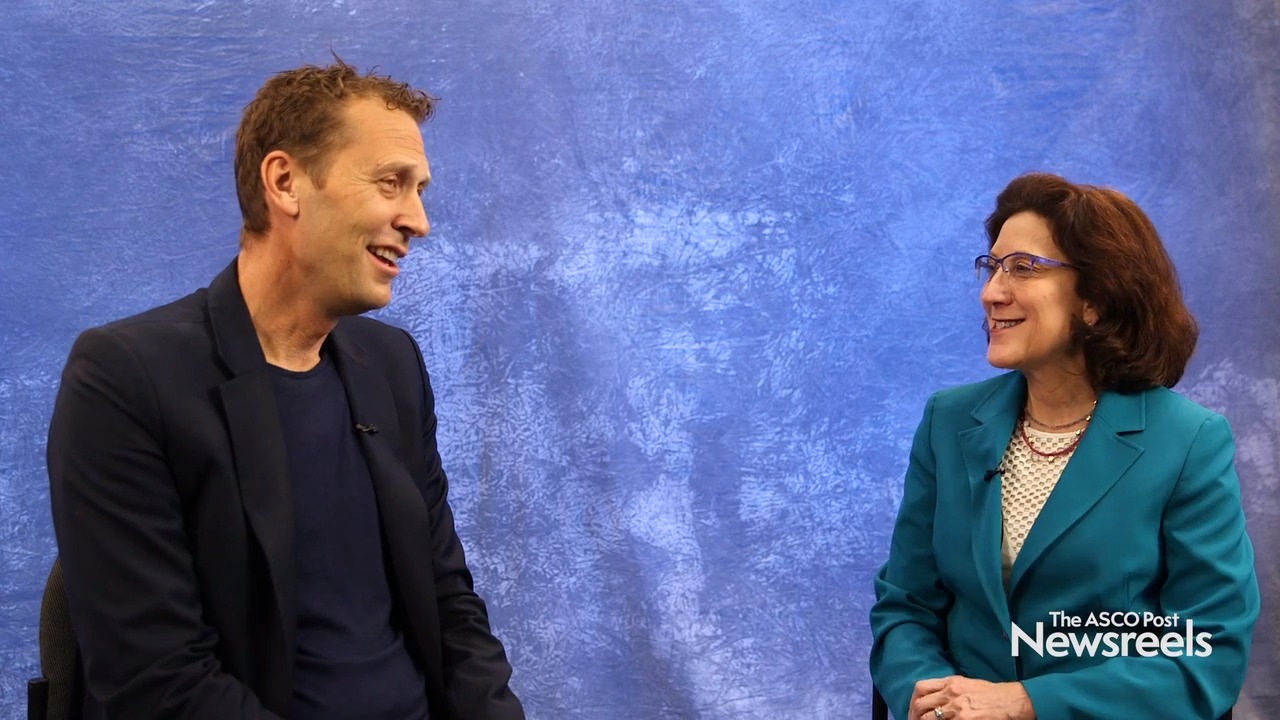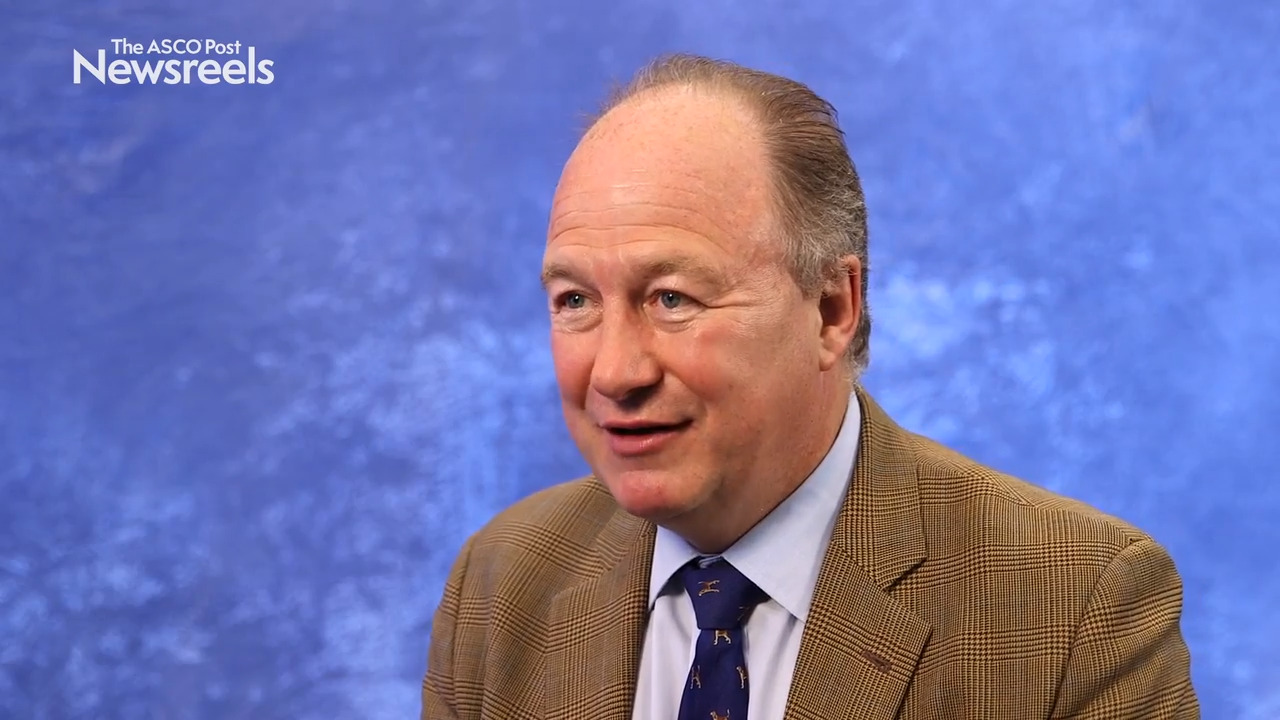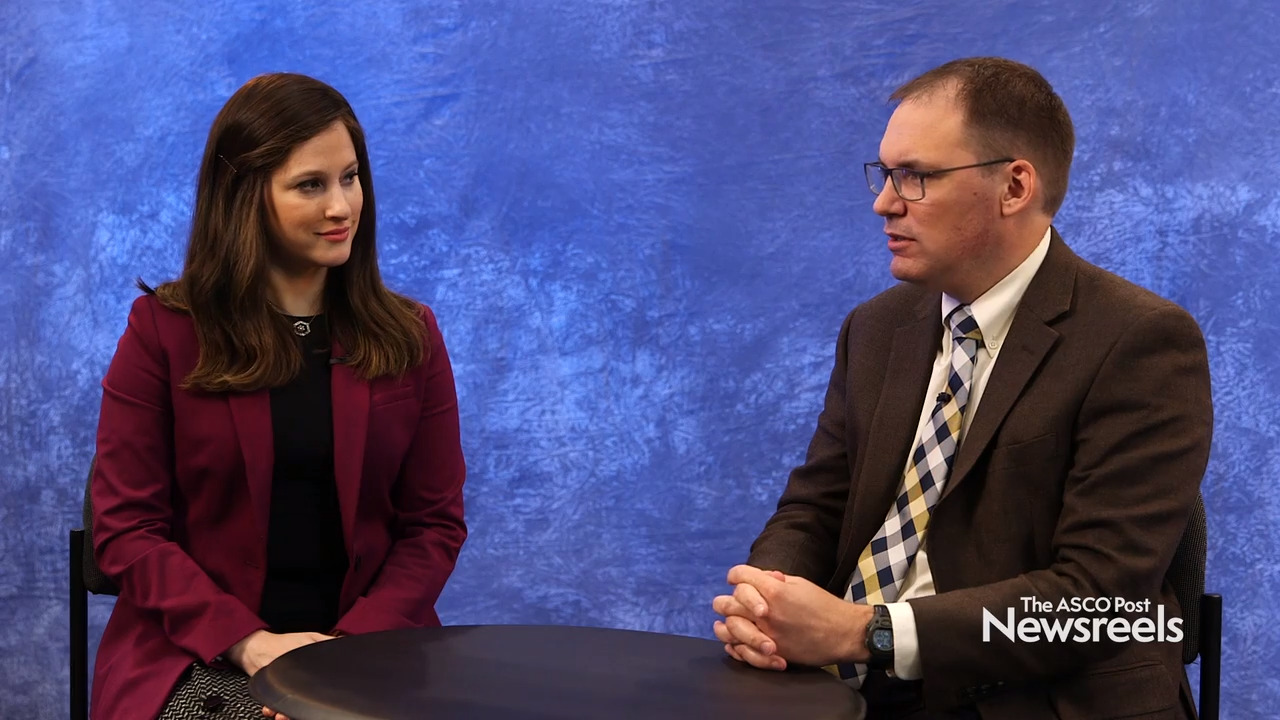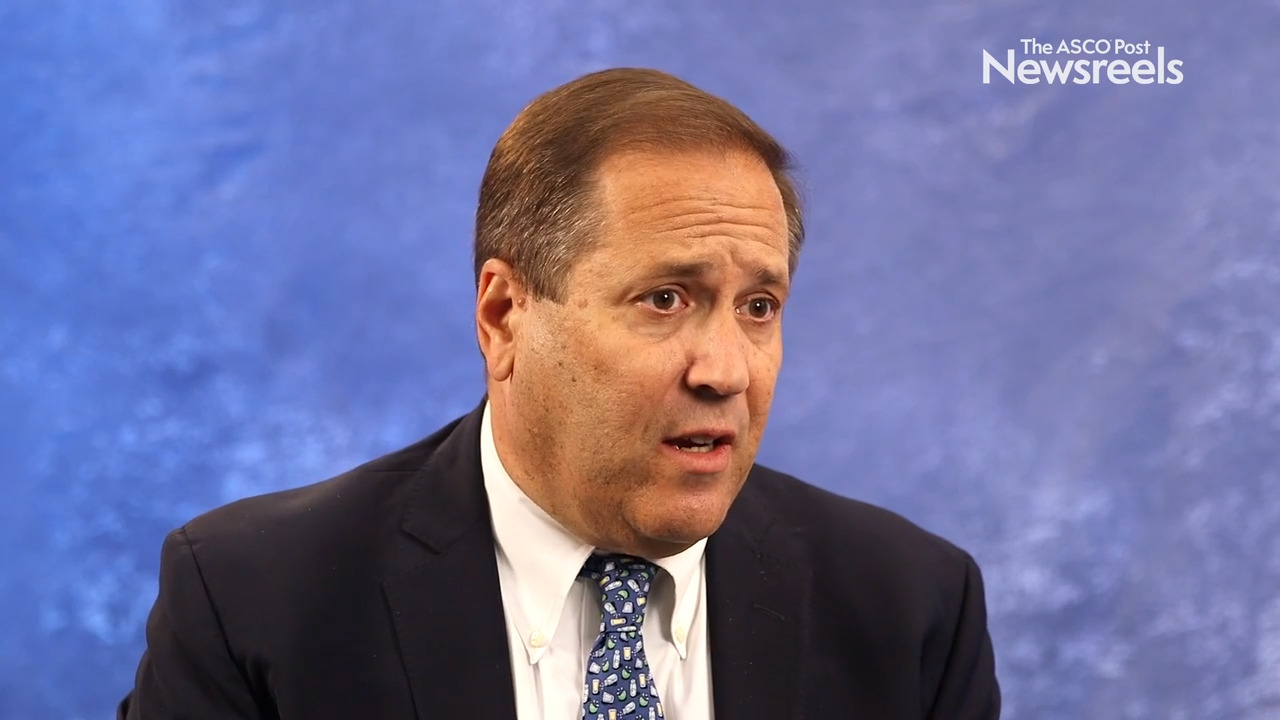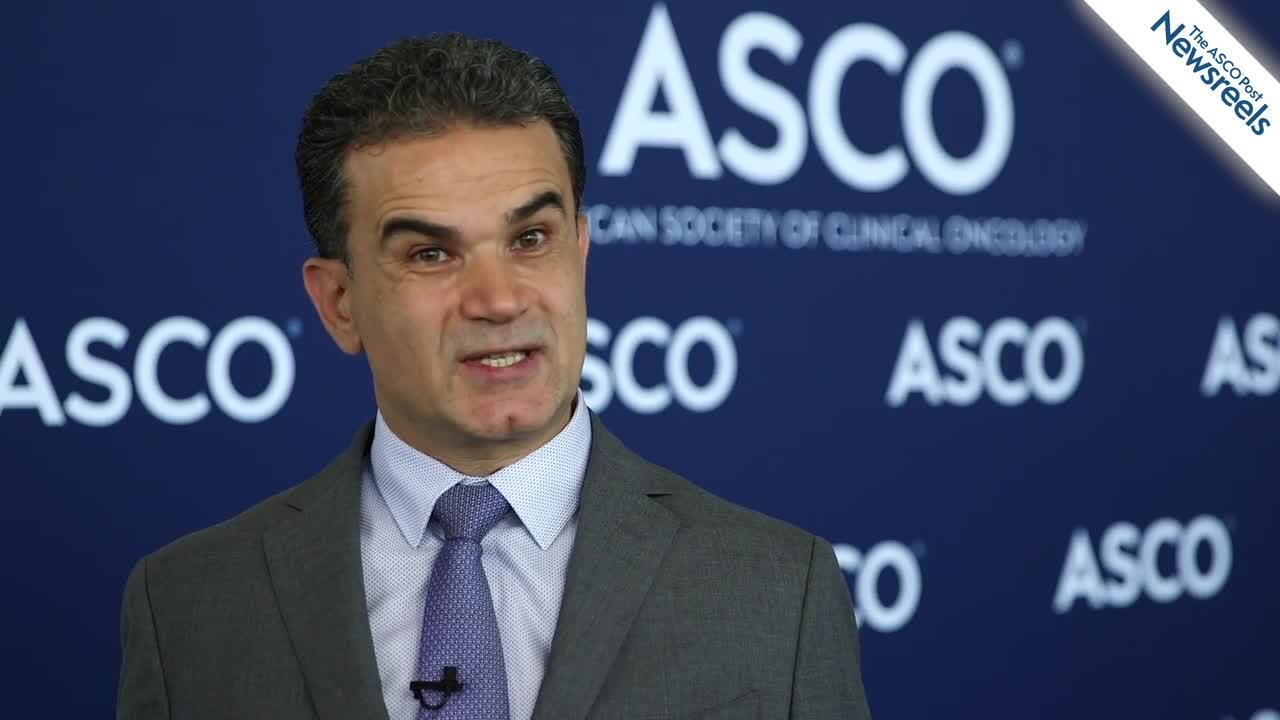Sara A. Hurvitz, MD, on HR+/HER2− Advanced Breast Cancer: MONALEESA-7 Trial on Endocrine Therapy With or Without Ribociclib
2019 ASCO Annual Meeting
Sara A. Hurvitz, MD, of the UCLA Jonsson Comprehensive Cancer Center, discusses the first study of ribociclib plus endocrine therapy vs endocrine therapy alone to demonstrate significantly longer overall survival in peri- and premenopausal women with advanced breast cancer (Abstract LBA1008).
Hope S. Rugo, MD, of the University of California, San Francisco, and Peter Schmid, MD, PhD, of Barts Cancer Institute, Queen Mary University of London, discuss ongoing trials of immunotherapy for early triple-negative breast cancer; immunotherapy in other disease subtypes such as estrogen receptor–positive and HER2-positive; and checkpoint inhibition in PD-L1–negative disease.
Paul G. Richardson, MD, of Dana-Farber Cancer Institute, discusses findings from the phase III ICARIA-MM trial showing that isatuximab, pomalidomide, and low-dose dexamethasone significantly improved progression-free survival and overall response vs pomalidomide and dexamethasone (Abstract 8004).
Miriam Knoll, MD, and Zachery Reichert, MD, PhD, discuss the FORCE trial, which is examining whether radiation can create a more durable response to systemic therapy, and whether using newer, more sensitive imaging technologies can improve outcomes (Abstract TPS5096).
Adam Brufsky, MD, PhD, of Magee-Womens Hospital and the Hillman Cancer Center at the University of Pittsburgh Medical Center, discusses phase III study findings on neratinib plus capecitabine vs lapatinib plus capecitabine in patients previously treated for HER2-positive metastatic breast cancer (Abstract 1002).
Ahmad A. Tarhini, MD, PhD, of Emory University and Winship Cancer Institute, discusses phase III findings from the U.S. Intergroup E1609 trial, which showed survival benefits for patients with resected high-risk melanoma—for the first time in the history of melanoma adjuvant therapy (Abstract 9504).
